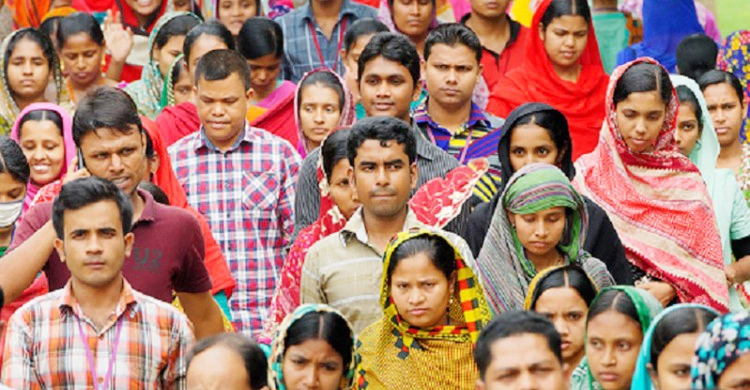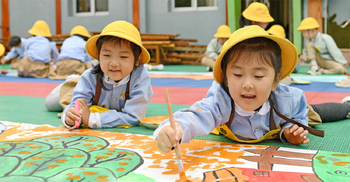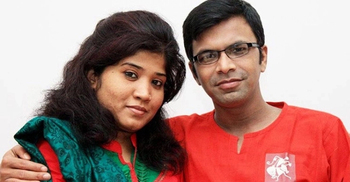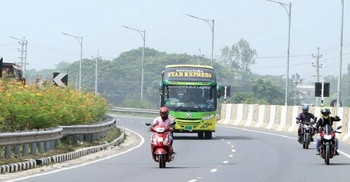Country's total population stands at 16,98,28,911

The country's total population stood at 16,98,28,911, according to the adjusted population in light of the PEC report of the sixth Population and Housing Census, 2022.
Considering the 2.75 percent Net Coverage Error (NCE), some 46,70,295 people have been added to the initially enumerated population and thus the total number of population stood at 16,98,28,911.
Out of the total population, some 68.34 percent or 11,60,66,925 people live in rural areas while 31.66 percent or 5,37,61,986 people live in urban areas.
The adjusted population figure in light of the PEC survey of the Census was published at a function held at the NEC Conference Room in Dhaka's Sher-e-Bangla Nagar area on Sunday.
Planning Minister MA Mannan spoke on the occasion as the chief guest while State Minister for Planning Dr Shamsul Alam spoke as special guest.
Statistics and Informatics Division Secretary Dr Shahnaz Arefin, Bangladesh Institute of Development Studies (BIDS) Director General Dr Binayek Sen and Bangladesh Bureau of Statistics (BBS) Director General Md Matiar Rahman spoke on the occasion while Population and Housing Census project director Md Dilder Hossain made a power-point presentation.
Considering the adjusted division-wise population, it was found that Dhaka Division hosts the highest number of 4,56,43,915 population which is also 26.88 percent of the total adjusted population.
On the other hand, Barishal Division hosts the minimum number of 93,25,818 population which is also 5.49 percent of the total adjusted population.
Besides, out of the total adjusted population, some 20.13 percent or 3,41,78,581 people live in Chattogram Division, some 10.49 percent or 1,78,13,957 people live in Khulna Division, Some 7.44 percent or 1,26,37,524 people live in Mymensingh Division, some 12.24 percent or 2,07,94,023 people live in Rajshahi Division, some 10.61 percent or 1,80,20,073 people live in Rangpur Division and 6.72 percent or 1,14,15,021 people live in Sylhet Division.
If the total enumerated and adjusted population is adjusted by sex, then it was found that some 49.51 percent or 8,40,77,203 people are male while 50.43 percent or 8,56,53,120 people are female. Besides, there is 0.01 percent or 12,629 Hijra people in the country.
Considering the total enumerated and adjusted population by religion, it was found that some 91 percent or 15,45,42,078 people are Muslims while some 8.95 percent or 1,52,00,876 people are non-Muslims.
Analyzing the total enumerated and adjusted population by age group, it was shown that the highest number of 10.10 percent population belongs to the 15-19 age group followed by 9.92 percent people to 10-14 years age group, 9.58 percent people to 0-4 age group, 9.31 percent people to 5-9 age group, 9.17 percent people to 20-24 years age group and 8.69 percent people to 25-29 years age group.
Earlier on October 10-16, 2022 the post enumeration check (PEC) survey on the Census was conducted by BIDS in some 378 sample areas and in some 39,003 households. The PEC report was published on February 6 this year where the net coverage error was found at 2.75 percent which is the lowest in the Census history of Bangladesh.
Speaking on the occasion, Planning Minister MA Mannan said that from now on, 16,98,28,921 would be the official figure of the last population Census.
He also opined for not holding the population census in every 10 years, rather to convert the total Census operation in a real-time manner to save time and cost.
State Minister for Planning Dr Shamsul Alam said that there is no doubt about the capacity of BBS as its capacity and skills have increased over the years while the Bureau has been discharging its duties as a team despite various limitations.
Noting that some 56.77 percent of the total adjusted population are aged between 0-29 years, Dr Alam said that the figure is really encouraging showing the strength of youth force as well as indicating that Bangladesh is moving towards the right direction.
As Bangladesh is eying to move towards as 'Smart Bangladesh', he said that the BBS now should think of providing population, birth and death related data every year through taking necessary steps.
Dr Alam said that due to various steps of the government, the urban and rural divide has decreased significantly while the rural population are now enjoying the facilities of urban people. He also informed that some 133 reports would be published by June 2024 centering the population Census.
Statistics and Informatics Division Secretary Dr Shahnaz Arefin said that the BBS would be able to deliver more accurate and pure data in the coming days.
Director General of BBS Md Matiar Rahman said that they have a plan to roll out population register to update population in real time and once it is materialized, there would be no need for holding the population and housing Census in every 10 years.
Answering to a question, he said that usually 5 percent net coverage error takes places in population census across the globe, but in case of the last population census in Bangladesh, it was only 2.75 percent which was also the lowest compared to the previous five population census.
Replying to another question, Matiar said that out of some 4 lakh tabs used for the Census, the BBS kept 2 lakh tabs for its future operations while the remaining 2 lakh tabs are being distributed among students across the country.
The country's population was 144,043,697 in 2011, according to the previous census in 2011.
The country's first Population and Housing Census was held in 1974 followed by the second census in 1981, the third one in 1991, the fourth census in 2001 while the fifth one in 2011.
On 15 June 2022, the sixth census and house enumeration activities started simultaneously across the country. Prime Minister Sheikh Hasina launched the week-long census at a ceremony at her official residence Ganabhaban in the capital.
The census was scheduled to end on June 21, but due to floods in the northeastern districts, the census continued till June 28.
The BBS conducted the census after more than 11 years.
Under the census operations, demographic and socio-economic data like number of households and their nature, ownership of homes, main source of drinking water, toilet facilities, power facilities, main source of fire for cooking, economic operations, inward remittance, age of household members, gender, marital status, religion, obstacles, education, work, training, mobile phone and internet usage, bank/mobile banking accounts, small ethnic groups, nationality and various district-wise information have been collected.
Source: BSS





